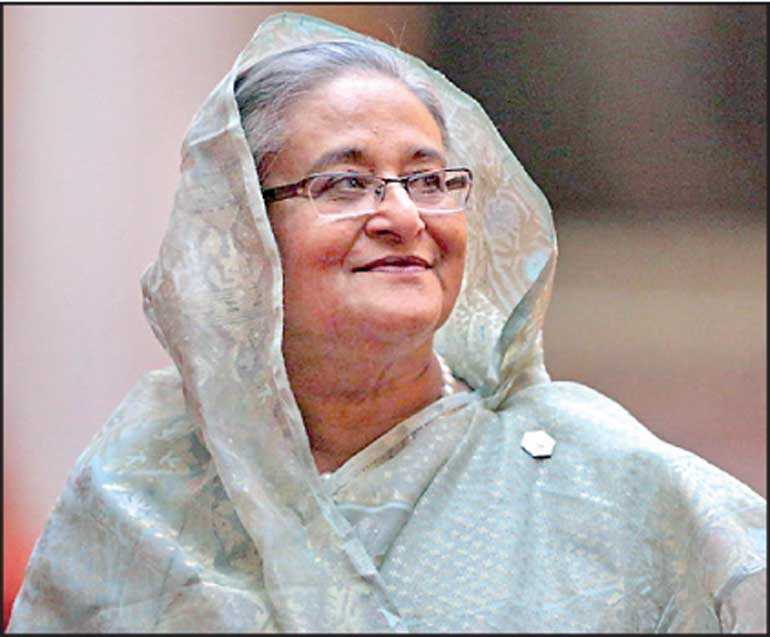Sunday Feb 22, 2026
Sunday Feb 22, 2026
Monday, 3 December 2018 00:00 - - {{hitsCtrl.values.hits}}

DHAKA (Reuters): The United States will send 12 teams of observers and fund thousands of domestic observers to monitor an election in Bangladesh it hopes will be free and fair, a senior official at the US embassy in Dhaka said.
Amid opposition concerns about rigging in the Dec. 30 general election, there has been speculation about US plans for it, especially after the European Union this week said it would not send observers, nor comment on the vote or result.
Prime Minister Sheikh Hasina is seeking a third straight term.
Her old rival, Khaleda Zia, who leads the main opposition Bangladesh Nationalist Party, is in jail after being convicted on charges she says were politically motivated. Scores of BNP workers have also been detained.
The BNP boycotted the last election, in 2014, as unfair, but has said it will take part this time, though it is seeking international monitors of polls it says it believes will be flawed.
The United States is sending a dozen teams, each of about two observers, who will fan out to most parts of the country, William Moeller, political officer at the US embassy in Dhaka, told Reuters.
“The Bangladesh government has emphasised that it plans to hold a free and fair election,” Moeller said this week.
“We welcome that and are providing funding for election observers who hope to see such an outcome.”
Moeller referred to reports of harassment and intimidation before recent city corporation elections, which he said may have suppressed voter turnout.
“We raised these concerns at the time, so we are hoping we won’t see the same issues in the national elections.”
The US National Democratic Institute said after an assessment in October the polls would be held “amid a high degree of political polarisation, heightened tensions and shrinking political space”.
The Bangkok-based Asian Network for Free Elections will send a team of about 30 short- and long-term observers, Moeller said.
About 15,000 Bangladeshi observers will be funded jointly by the US Agency for International Development, Britain’s Department for International Development and the Swiss government, he said.
The domestic observers would spread out but might not be able to reach every polling station, he said.
Playing down worries
Hasina and Khaleda have alternated in power over the last 28 years. Elections in Bangladesh are often violent and marred by ballot-stuffing and voter intimidation.
Hasina’s Awami League has held power since 2009 and dispensed from 2014 with a practice of letting a neutral caretaker government oversee elections, to the anger of the BNP.
The government has brushed off opposition fears of rigging.
“I don’t see any possibility this time, because all the parties are participating, and all of them will have their election agents,” said HT Imam, a political adviser to Hasina.
Bangladesh has seen steady economic growth under Hasina and the development of a vibrant garment sector under-pinning export growth, and accounting for 80 percent of the economy.
But rights groups have criticised increasing curbs on freedom of speech and the media.
Hope to capitalise on dissatisfaction, the BNP has formed an alliance with smaller parties called the National Unity Front and Hasina said this week she expected competitive polls.
The EU delegation in Dhaka said it was not sending observers because of growing demand for them amid tight resources.
India had no plan to send observers unless Bangladesh asked, an official at the Indian High Commission said.